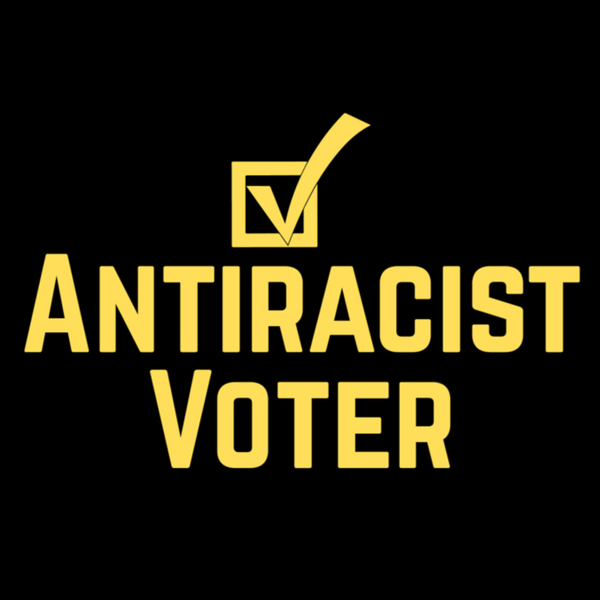
The Most Powerful, Invisible Position in the State, with De’Vonna Pittman
- S1E10
- 21:22
- September 6th 2020
A complete transcript of the interview can be found here: https://antiracistvoter.com/devonna-pittman/
Want to be an antiracist voter? Educate yourself, and then vote all the way down the ballot.
Who is your County Commissioner? Go ahead. Think about it. I’ll wait.
There’s a good chance that you have no idea who your county commissioner is. And yet, in Hennepin County, Minnesota, the county commission controls a $2.5-billion-dollar budget.
Criminal justice, economic justice, environmental justice, education, housing, health, and voting rights all begin with local governments.
Despite the importance of local elections, only 30% of eligible voters vote in local elections. In many local elections, voter turnout can be in the single digits. And, though 60% of eligible voters vote in presidential elections, many voters don’t vote all the way down the ballot, skipping local candidates and ballot initiatives.
Today, we’re going to meet one woman who wants to use the office of County Commissioner to deal with some of the disparities in our community.
De’Vonna Pittman is familiar with the issues in Hennepin County. She works as the Disparity Reduction Coordinator for the county. She is also active in her community. She founded the Minnesota Black Author’s Expo. And, she is a candidate for the Hennepin County Commission, District One.
A complete transcript of our conversation can be found below.
Learn More About De’Vonna Pittman:
De’Vonna Pittman’s campaign website: https://peopleforpittman.com
De’Vonna Pittman on Facebook: https://www.facebook.com/PeopleForPittman
De’Vonna Pittman on Twitter: https://twitter.com/People4Pittman
De’Vonna Pittman on Instagram: https://www.instagram.com/PeopleForPittman
Antiracist Voter
The murder of George Floyd created a moment of reflection and rededication to racial equality. But moments are ephemeral. Americans have a notoriously short attention span.
How do we maintain momentum so that the moment becomes a movement?
How do we translate the demands of protests into the domain of policy?
Antiracist ideas are activated in antiracist policy, especially in local elections.
We focus on criminal justice, economic justice, environmental justice, education, housing, health, immigration, and voting rights. We talk about problems, but we don’t stop there. We talk about solutions. Who is getting it right?